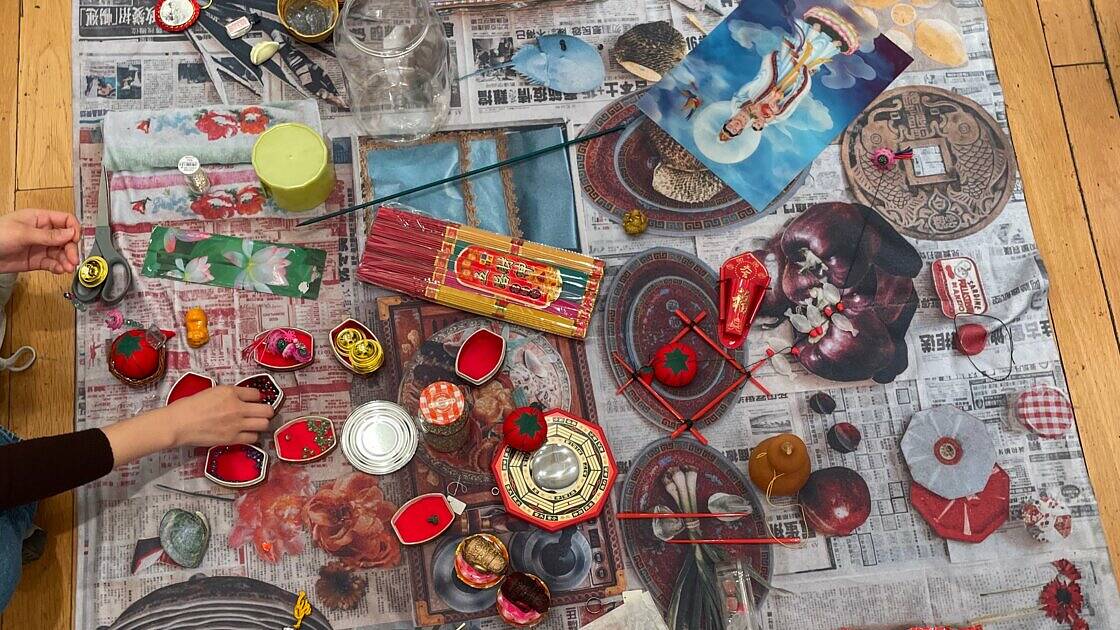
Rituals & Altars: a Community Workshop for the New Year w/ Alison Kuo
3 – 4:30PM
Learn about the traditions and rituals of the Lunar New Year as the Think!Chinatown team shares the practices and etiquette of altars observed in Chinatown and in their own homes. We’ll then discuss how these traditions might be relevant to our lives now and how they have been adapted for secular use for diasporic homes. T!C’s Lantern Artist-In-Residence Alison Kuo will lead us through a textile art workshop to create fabric fruits for you to bring home to your altar. As a group, we will practice building an altar communally. Tickets required, sliding scale $20-35.
Check out T!C’s full Lunar New Year lineup at www.thinkchinatown.org/lny
Alison Kuo is a second generation immigrant who pursues intersectional relationships across communities through artistic engagement. She is the co-founder of the group Sisters in Self-Defense based in Manhattan’s Chinatown along with the writer Ava China. She has worked as a teaching artist at the Abrons Art Center, the W.O.W. Project, the Hamilton-Madison House Senior Center, and Think!Chinatown and has served as faculty in the SVA MFA Fine Arts Program.
—
All ticket proceeds will directly go back to making these community events possible.
If you are unable to contribute financially, please don’t hesitate to reach out! Ask about options to volunteer.
Think!Chinatown is committed to hosting accessible events for Chinatown neighbors. As they continue to present free, public events throughout the neighborhood, they invite you to support us with a contribution to grow their home and community art space at 1 Pike St.
Think!Chinatown is a place-based intergenerational non-profit in Manhattan’s Chinatown, working at the intersection of storytelling, arts and neighborhood engagement. They believe the process of listening, reflecting and celebrating develops the community cohesion and trust necessary to work on larger neighborhood issues. By building strength from within the neighborhood, they can shape better policies and programs that define public spaces, celebrate cultural heritage and innovate how collective memories are represented. Learn more at www.thinkchinatown.org